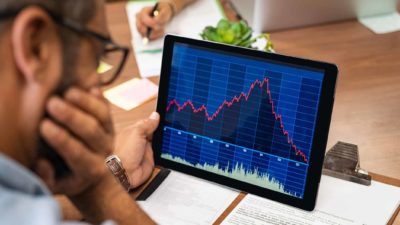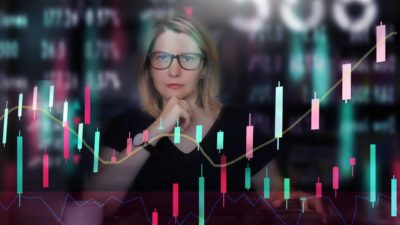At one point in March, the All Ordinaries (ASX: XAO) was 32.9% lower than the start of the year. Although it has rebounded in recent weeks, it is still 22.7% lower than the start of January (at the time of writing).
The S&P/ASX 200 Index (ASX: XJO) is no different, down 22.1% from the 6,690 points it recorded at the start of January.
The markets have certainly felt the coronavirus impact.
But how wide is the impact and how long will its aftermath linger?
Let's examine the coronavirus economic impact and how stock markets historically perform following pandemics.
Depressed investment opportunities following pandemics
In a recent working paper for the Federal Reserve Bank of San Francisco, 3 economists from the University of California — Sanjay Singh, Alan Taylor and Oscar Jorda — analysed the impact of pandemics on economic activity, including the 1968-69 Hong Kong flu outbreak that killed over one million people.
As reported by The Age, the research trio found "significant macroeconomic after-effects" from pandemics that lasted 40 years, with "real rates of return substantially depressed."
The trio further found that "following a pandemic, the natural rate of interest declines for decades thereafter, reaching its nadir about 20 years later, with the natural rate about 150 basis points lower had the pandemic not taken place."
In the working paper, the researchers' results indicated that "pandemics are followed by sustained periods – over multiple decades – with depressed investment opportunities."
The researchers did qualify their findings with a "major caveat" that past pandemics struck younger populations "when virtually no members of society survived to old age." They ended their paper by saying "this time may be different."
What does this mean for the ASX and stock markets worldwide?
The coronavirus has already prompted experts to discuss the possibility of a recession.
For instance, ABC News recently reported the chief executive of JP Morgan Chase, Jamie Dimon, warning that the US could fall into "a bad recession" in 2020.
The Commonwealth Bank of Australia (ASX: CBA) Global Economic & Economic Markets Research team released an update on 3 April, stating that a "recession is expected" in Australia.
CommBank's research team thinks the coronavirus will end Australia's 28 years of uninterrupted GDP growth. The team forecasts a "massive contraction in GDP of 7.5% in the June quarter" and negative growth over the year of -3.4%.
CommBank's team further stated that they expect a recession in the US to be "at least as deep as during the Global Financial Crisis (GFC)."
If a recession is forecasted, then stock markets will generally fall in the short to medium term as the markets will price in the negative consequences of rising unemployment and lower profits on stock performance.
Further, uncertainty leads some investors to recalibrate their portfolios in favour of bonds and away from equities.
For reference, the Dow Jones Industrial Average fell sharply during the 2008/09 recession. The plummet correlated with a fall in the US GDP.
Stock market performance after viral outbreaks
MarketWatch recently reported that stock market reactions to epidemics are "often short-lived."
For example, citing Dow Jones Market Data, Market Watch reports that the S&P 500 gained 11.66% in the 6 months following first reports of the 2006 avian flu virus. In the following 12-month period, the market rose 18.36%.
Data by Charles Schwab tracking the MSCI All Countries World Index indicates similar buoyant performance from global equity markets.
On average, the data shows that global stock market performance was up 0.44% a month after an epidemic outbreak, 3.08% after 3 months, and 8.50% after 6 months.
An important caveat is that averages absorb a variety of cases. For instance, the Schwab dataset did indicate that 6 months after each of the HIV/AIDS, pneumonic plague, and Ebola epidemics, the global stock markets were down over 3.25%.
Another caveat is that not all epidemics are born equal. The unprecedented global shutdown response to the coronavirus may mean the COVID-19 outbreak is an orange to the other outbreaks' apples.
Indeed, it is unlikely that most, if any, of the cited epidemics directly led to recessions in multiple countries like the coronavirus is slated to do soon.
Foolish takeaway
A 2006 Fidelity International report on stock markets during pandemics found that in "investment terms, it is hard to mitigate the effects of events such as pandemics."
However, the report concluded that "at such times, investors should remember the benefits of long-term investing."








